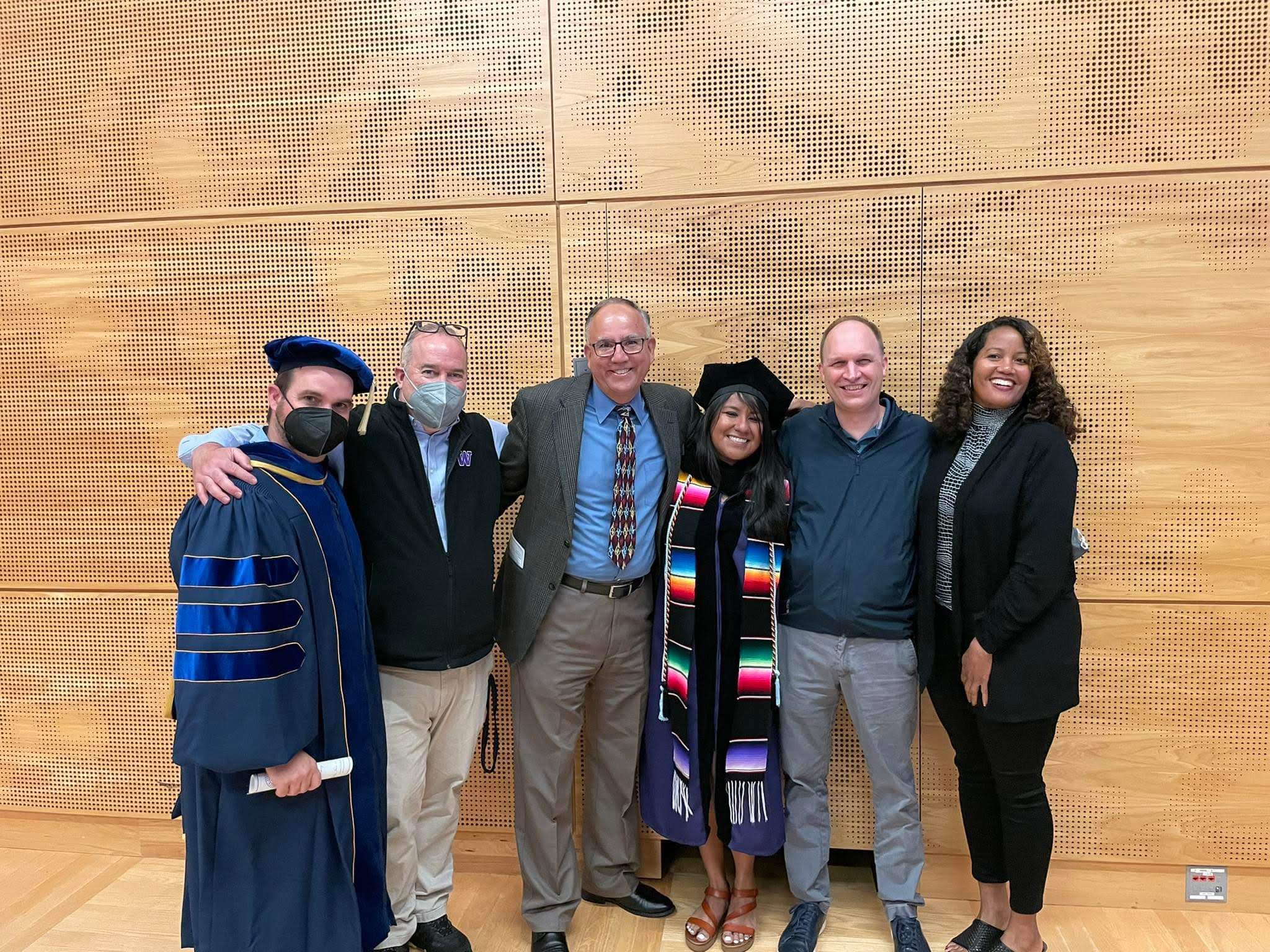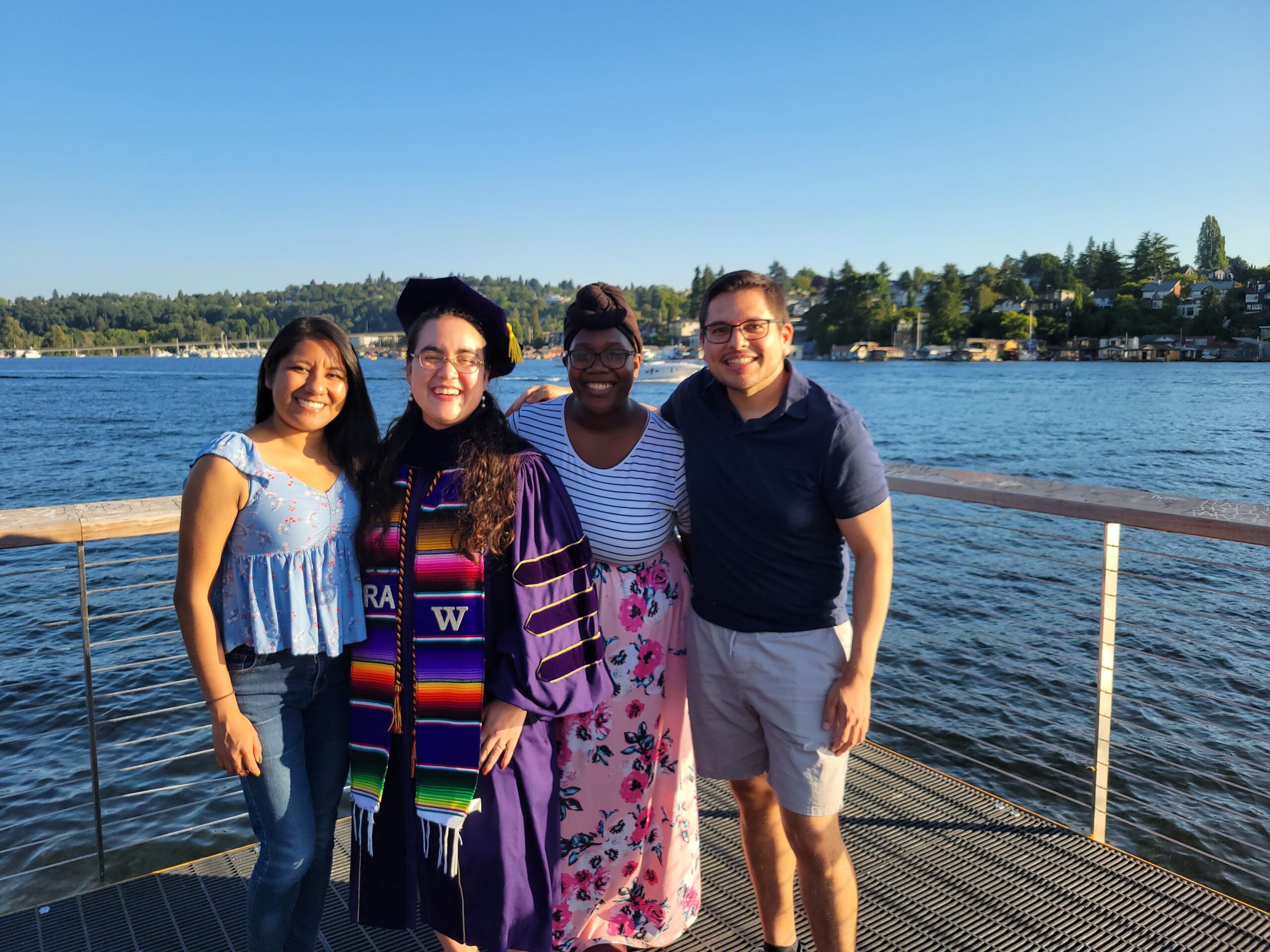Arianna Gómez: Understanding Aging
Arianna's Work on Genetic Factors in Osteoporosis
It was at a middle school science fair where Arianna Gómez became interested in science. Compared to her peers, she had a passion for searching for answers and crafting presentations for her findings. By the time she entered college, her family had encouraged her interests and passion, and their support led Arianna to go into biomedical research.
“I’m adopted, and my adopted father had a genetic condition; that’s why I was interested and wanted to help people like him,” Arianna says.
During her undergraduate years, she participated in a program that funded her research. Having never heard of Ph.D. programs before college, she was unsure of what to look for or which factors to consider. Amidst the uncertainty, a professor provided clarity. He pointed her towards the UW, citing its reputation and program quality. This advice, coupled with her own research into the program and department, convinced Arianna that the UW was the right choice.
Arianna received her Ph.D. in Molecular Medicine and Mechanisms of Disease (M3D) in March 2022 and is now a post-doctoral fellow at the UW Department of Orthopaedics and Sports Medicine and is affiliated with the Institute for Stem Cell and Regenerative Medicine (ISCRM).

Her current research focuses on understanding how genetic changes affect skeletal structures with aging. The broad goal of her lab is to understand how these genetic factors contribute to osteoporosis and other orthopedic conditions. Her specific interest lies in understanding how cellular-level factors of aging affect bone health and contribute to the development of osteoporosis.
Ultimately, Arianna aims to identify new targets for therapies and better understand individual risk factors for these conditions with a goal to help people live longer, healthier lives.
“As we age, our bodies become more unique and develop different sets of disease, which require personalized treatment,” Arianna says.
Arianna’s research is not only academically significant but also has practical implications, especially given the increasing aging population. Her work may contribute to more personalized and effective treatments for age-related conditions. Arianna’s involvement in the T32 aging program at the UW has further shaped her perspective on aging research and how she wants to conduct her future studies in this field.
Although she enjoyed her research at the UW, Arianna struggled with her move from San Diego to Seattle. “I was coming from an institute that had a much larger Hispanic community and warmer weather to Seattle where there is not as much diversity and colder weather,” Arianna says. She describes her first year at UW as feeling lost and not finding her own sense of community.
Her urge for connection drove her to the Society for the Advancement of Chicanos/Hispanics and Native Americans in Science (SACNAS), where she was able to meet other Latinx students in STEM. Through her friends at SACNAS, she connected with the Office of Graduate Students Equity and Excellence (GSEE). Despite receiving an award from GSEE in her first year, Arianna hadn’t been actively involved until then, a decision she came to regret.
As she became more involved in SACNAS and GSEE, Arianna not only made friends but took on leadership roles. Through GSEE, she was part of Outreaching Grads (OG’s) and worked on recruiting diverse talent to the UW community, speaking on panels about being a woman of color despite the lack of representation.

These organizations not only provided her with a sense of belonging but also served as platforms for her to make a tangible impact. Through her involvement, she took on leadership roles, organized events and advocated for underrepresented students in STEM, actively working to create the more inclusive and diverse academic environment she sought when she first arrived.
Over time, Arianna found the support and sense of belonging she had been seeking at the UW, enriching her academic journey and personal growth.
To incoming graduate students, Arianna says to seek resources and make sure you find people to advocate for you. “Also picture yourself living there. It took me 6 years to get used to the cold, and it’s only gotten colder in the winter,” Arianna says.
But most importantly, Arianna advises current graduate students to find community whether that be with friends, a writing group or people outside your department.
“Graduate school is hard, but having people outside my department to talk with and even gain different perspectives helps take the stress away,” Arianna says.
By: Tatiana Rodriguez, UW Graduate School
Published on June 3, 2024